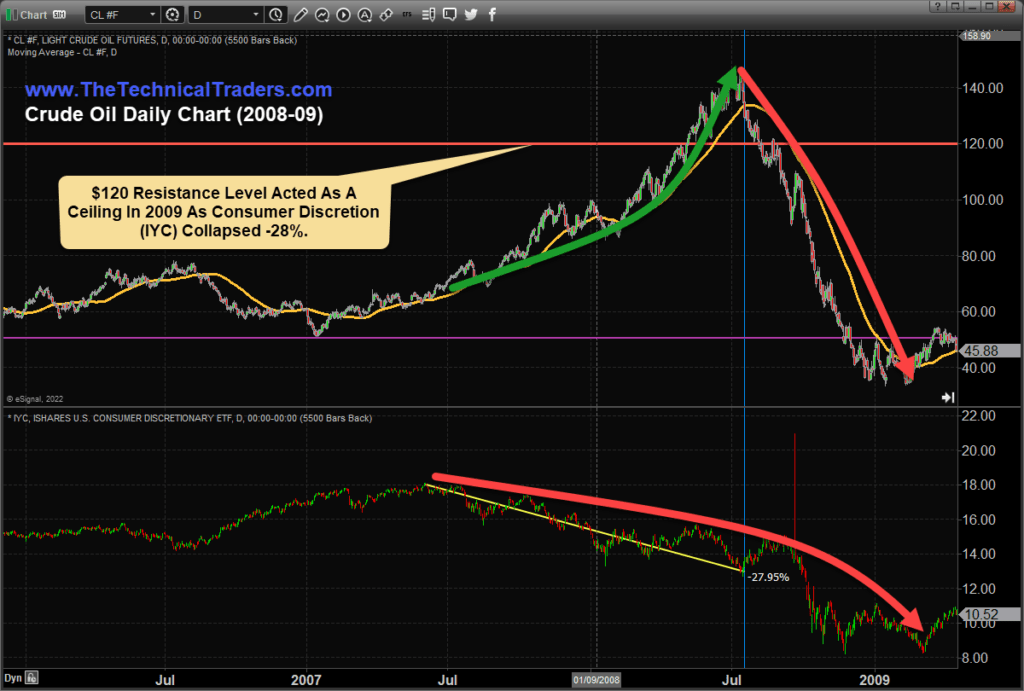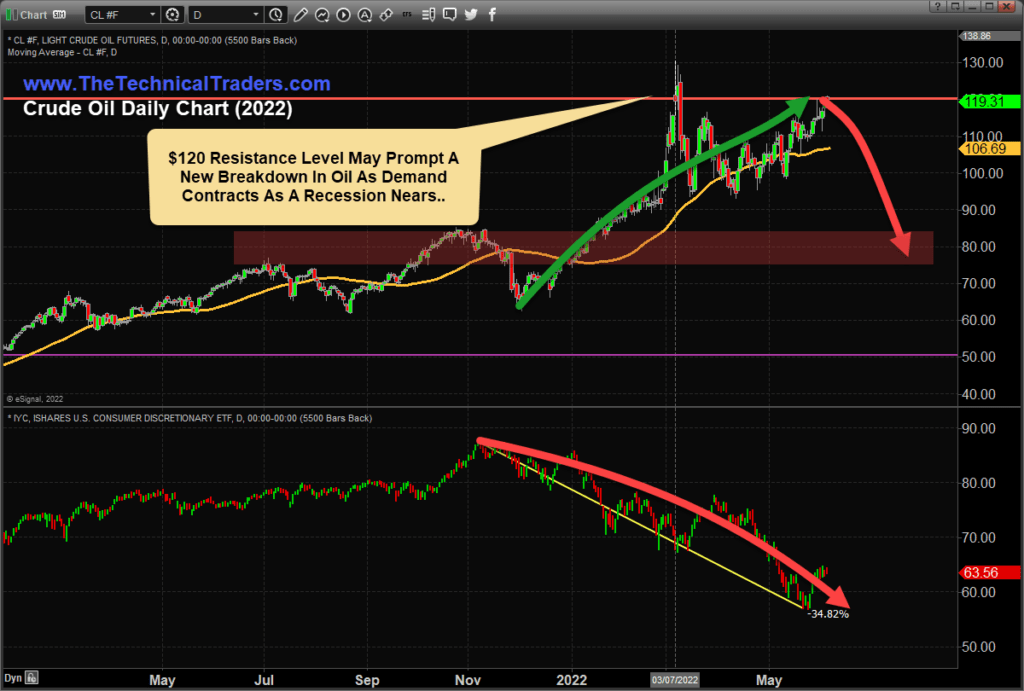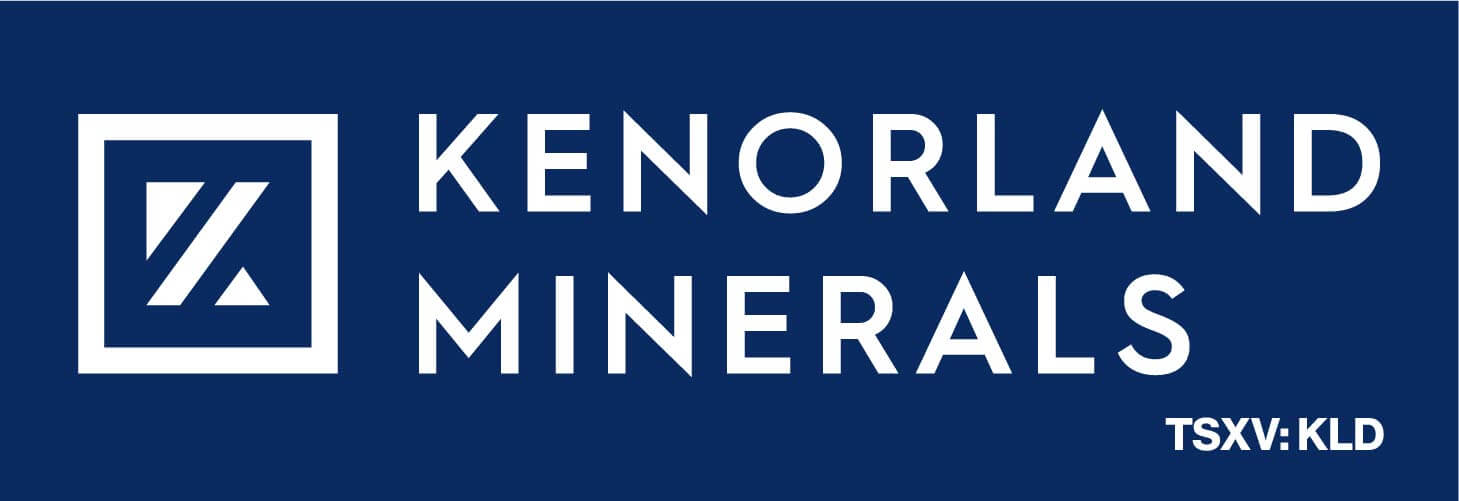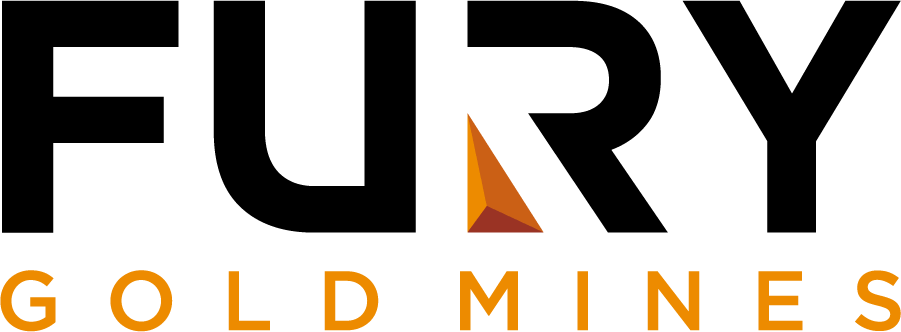Crude Oil Price And Consumer Spending – How They Are Related
Crude Oil & Gasoline prices have been a hot topic for almost everyone recently. As inflation surges, consumers are feeling the increased pricing pressures from all sides right now. It is starting to reflect in the use of credit cards, discretionary spending habits, and summer holiday travel plans.
As the US Fed adjusts rates to burst inflation trends, consumers are left trying to navigate a minefield of unknowns. How far will the Fed have to raise rates – and how quickly? Will this affect the jobs/housing markets? How will this affect credit/borrowing costs? Will a US recession risk a bigger collapse in US jobs/economy – creating broader issues for consumers?
The natural reaction of consumers at times like these is twofold. First, they pull away from making huge purchases. Second, they watch every penny being spent. Therefore, we are seeing consumer discretionary spending, auto sales, vacation rentals, and other types of spending sharply falling right now.
IYC Collapsed In 2007-08 – Just Before Peak Oil Prices
I remember watching the Consumer Discretionary ETF (IYC) collapse throughout most of 2007-08, just before the Global Financial Crisis (GFC) hit. As the US Fed continued to raise rates in 2005-06, and as the US economy started to weaken, Consumers acted like a “canary in a coal mine” – pulling away from normal spending habits as fear and uncertainty levels rose.
What I found interesting about the rising Crude Oil prices at that time, was that they appeared to compound the speed at which consumers pulled away from the economy. This resulted in a much more aggressive collapse eventually.
As you can see from the Crude Oil/IYC chart below, is that Crude Oil rallied more than 100% (from $70 to above $140) at the same time consumers were pulling away from the economy. The speed of the rally seemed to push consumers further away from normal activities. In a way, this is like a self-fulfilling price event.
Are we seeing the same thing happen right now?

IYC Collapsed More Than -34% Already – Are We At Peak Oil Now?
When the GFC finally hit, IYC collapsed another -55%, and Crude Oil fell from $147 to $33 ppb, more than -77%. The GFC resulted in one of the biggest market declines since the Great Depression.
The increased volatility and peak in oil prices seemed to take place as the end of an excess phase bubble was starting to unwind. Consumers were already pulling away from the economy at that time.
More recently, IYC has been falling since early November 2021 (for over 7 months). Crude Oil has already risen from $62 to $130.50 (more than 100%). This begs the question: have we already reached peak oil prices while the consumer discretionary sector is nearing a major breakdown event (see chart below)?

The Three Factors At Play: Consumers, Refiners, US Fed
In 2008, when the GFC crisis started, the factors that initiated the collapse were related to consumer/institutional/global finance and credit markets. The US Fed played a role by raising interest rates above 5% while the excess of the housing market boom (an excess phase bubble) started to unwind.
Now, we have different factors at play. The US Fed is still a major player in this equation – attempting to raise interest rates to combat inflation. Consumers are still doing what they do – reacting to the fear and uncertainties of a changing economic future while trying to provide for their families. This time, COVID and supply-side issues drive some aspects of Oil/Gas price levels. Yet we have to also understand the excessive stimulus and capital creation that has taken place over the past 3+ years.
In some unique way, the current global economic situation is not that different than what was taking place in 2006-08 throughout the globe. The primary difference this time is the COVID virus event and the disruption of supply across the globe.
$120 Peak Oil Appears Likely – Watch IYC For A Breakdown
Watch IYC for any continued breakdown below $60 as a sign the US/Global economy, and Oil may start to breakdown as well. Remember, Consumers are the “canary in the coal mine”. We will likely see a big shift in consumer spending, and how much credit they are using to pay their bills before we see a big breakdown in Crude Oil.
Watching IYC move lower over the past 7+ months and seeing the -34% price decline recently suggests the $120 Crude Oil price level may be the critical resistance level going forward. Watch for Oil to retest and fail near $120 as confirmation of this potential peak level.
WHAT STRATEGIES CAN HELP YOU NAVIGATE THE CURRENT MARKET TRENDS?
Learn how we use specific tools to help us understand price cycles, set-ups, and price target levels in various sectors to identify strategic entry and exit points for trades. Over the next 12 to 24+ months, we expect very large price swings in the US stock market and other asset classes across the globe. We believe the markets have begun to transition away from the continued central bank support rally phase and have started a revaluation phase as global traders attempt to identify the next big trends. Precious Metals will likely start to act as a proper hedge as caution and concern begin to drive traders/investors into Metals and other safe-havens.
Historically, bonds have served as one of these safe-havens. This is not proving to be the case this time around. So if bonds are off the table, what bond alternatives are there? How can they be deployed in a bond replacement strategy?
Sign up for my free trading newsletter so you don’t miss the next opportunity!
We invite you to join our group of active traders who invest conservatively together. They learn and profit from our three ETF Technical Trading Strategies which include a real estate ETF. We can help you protect and grow your wealth in any type of market condition. Click the following link to learn more: www.TheTechnicalTraders.com
Chris Vermeulen
Chief Market Strategist
Founder of TheTechnicalTraders.com
The post Crude Oil Price And Consumer Spending – How They Are Related appeared first on Technical Traders Ltd..





